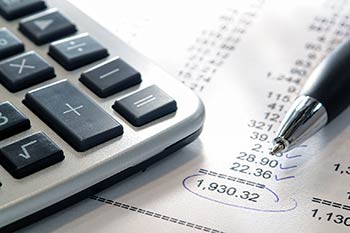Although it may seem like an intimidating process, opening a bank account is actually quick and easy as long as you are prepared. Be sure to have the required documents on hand, whether you are applying online or in person, so that the process runs smoothly. Wondering how to open a bank account or which account is right for you? Read on below for quick tips.
Should I Choose a Checking or Savings Account?

Deciding on a checking or savings account is a matter of personal preference depending on your financial situation.
A checking account may be right for you if you are looking to:
- Pay your bills from the account
- Use a debit card for purchases
- Write checks
You should opt for a savings account if you want to:
- Set aside money to reach a financial goal
- Create a fund in case of emergency
If you decide that a checking account is right for you, look for a bank that offers low monthly fees, minimal or no fees if you overdraft, and easy access to ATMs. If a savings account better meets your needs, choose one with a high interest rate.
What Information Do I Need to Open a Bank Account?
Before you open a bank account, there are a few forms of personal identification that you will need to create the account.
- A form of identification – A valid government-issued photo ID is needed. This can be a driver’s license, state ID, or passport.
- Additional personal details – Along with the valid photo ID, you will need to provide other personal information such as your Social Security number, birthday, and phone number.
- Details about co-applicants – If you plan to open a joint account, you will need to provide the same information for the other person on the account.
- Co-owner – If you are under the age of 18, a parent or legal guardian will need to be the one to sign any legal documents with the bank.
Opening the Account
Once you are ready to open a bank account, simply apply and make your first deposit online or via phone. If this is not your first account, it is easy to transfer funds from an old account to your new one. If this is your first bank account, contact your bank about its policies. In some cases, you may be able to open account and add funds at a later date. However, there are many banks that want you to open an account in person and immediately make a deposit in cash or by check.
Closing an Old Account
If necessary, you may want to close your old account. Knowing the proper way to do so can eliminate late fees or other hassles down the road. Keep these tips in mind:
- If your employer uses direct deposit, notify them of your account change.
- Delete any old banking apps and download the app for your new bank.
- Cancel automatic bill payments and set up new ones with your new account.
- Get rid of any blank paper checks tied to your old account.


